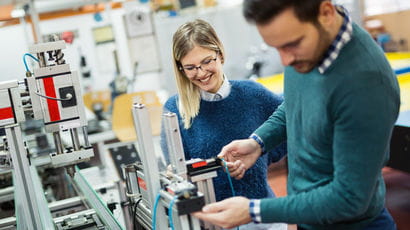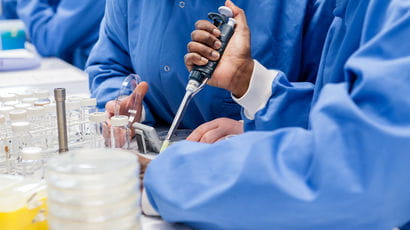Careful talk saves lives: improving teamwork in hospital emergencies
The outcomes of emergency situations in hospitals are greatly improved if healthcare professionals communicate with each other effectively. A UWE Bristol research collaboration has helped achieve this by feeding directly into the content of their training. Courses have been attended by hundreds of maternity staff from hospitals across the UK, and have spread around the world.
UWE Bristol research tackles real-world problem
A large proportion of maternal and baby deaths during labour or delivery could have been prevented with better clinical management and teamwork. Training hospital staff to work together as effectively as possible during obstetric emergencies is therefore a priority. This has been recognised at the highest levels, for example in a UK House of Commons Health Committee report on Patient Safety in 2009.
But what exact ways of working together achieve the best results? What lessons can be learned? These questions have been addressed by research jointly led by UWE Bristol linguist Dr Jo Angouri and Dr Dimitrios Siassakos of the University of Bristol, together with Professor Timothy Draycott and Senior Research Midwife Cathy Winter from Bristol’s Southmead Hospital.
Since 2009, they have worked with a multidisciplinary team from both universities and local hospitals. They investigated how healthcare professionals communicate with each other, and how this relates to the outcomes of emergency situations.
The team found that there was better performance when handovers between staff were structured. This involved stating early on exactly what the emergency was, followed by the team leader directing a message to a named individual, who in turn acknowledged, executed and confirmed the completion of the task.
Simulated emergencies were videoed in six hospitals. Actors playing the part of the patient rated the teamwork as better when there had been an explicit statement of the nature of the emergency, the condition of the baby and mother, and the treatment plan to be followed.
Focus groups of healthcare professionals discussing real emergencies also found that it was crucial to set out clearly the clinical situation, the patient’s needs and the roles of each of the team members.
Helping to bring about change
These insights have had a direct effect on the content of training widely given to maternity staff. They were taken up and incorporated into a widely used course manual known as PROMPT (Practical Obstetric Multi-Professional Training) when it was revised and updated in 2012. They appear in the manual’s chapter on teamwork.
The manual forms part of a package of training that focuses on obstetric emergencies. The team’s findings have been used in the teamwork and leadership sections threaded throughout its practical sessions.
For example, Southmead Hospital, Bristol, has held PROMPT ‘train-the-trainers’ courses every two months. Maternity staff who attended took the package back to train their colleagues in their own units around the South West of England and the rest of the UK. By the end of 2013, around 900 professionals had attended, including obstetricians, anaesthetists and midwives.
Similar courses held at the Royal College of Obstetricians and Gynaecologists, London, have also made use of the research findings and the revised PROMPT manual. By 2013, these courses had trained 208 trainers from 52 UK maternity units, together with further professionals from around the world.
PROMPT is now being used in the majority of maternity units in the UK.
Global influence
Use of the updated manual has spread to training in Australia, New Zealand, China (including Hong Kong), USA, Iceland, Belgium and Ireland. There are now region-specific versions for the USA, China and Australia and New Zealand, with further versions in the pipeline.
The insights gained from the research are therefore making a real difference on the ground, not just in the UK but also internationally.
Contribution to the UN 2030 sustainable development goals
UWE Bristol is proud to align our research to the UN sustainable development goals. The above research aligns with the following goals:
Breaking research boundaries
We’re tackling the big issues of today and tomorrow head on. This is big, brave thinking for a better future. It’s research done well. Research with the power to transform lives, transform the future.
Breaking research boundariesYou may also be interested in

News
The latest news stories from across UWE Bristol.

Research centres and groups
Browse UWE Bristol's portfolio of research areas, expertise, staff and publications.

